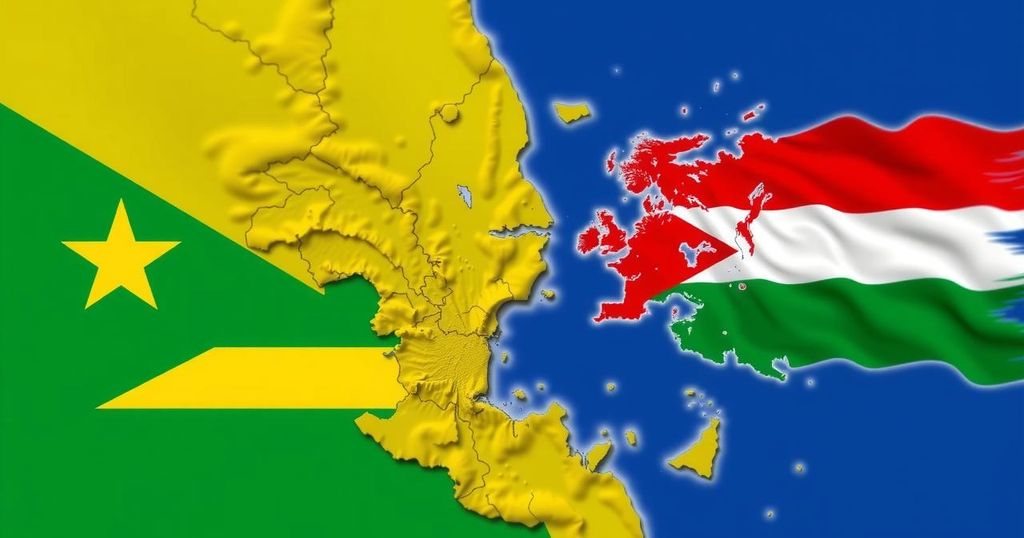Suriname Protests Guyana’s Actions in Disputed Tigri Region

Suriname has issued a protest to Guyana regarding its plans to develop an airstrip and a school in the disputed Tigri area. This move underscores the longstanding territorial conflicts between the two nations, dating back to military confrontations in 1969. Suriname’s foreign minister has articulated concerns over possible violations of prior agreements aimed at maintaining peace in the region.
Suriname’s Minister of Foreign Affairs, Albert Ramdin, officially protested against Guyana’s intent to develop infrastructure in the disputed Tigri region. Reports indicate that Guyana’s President, Irfaan Ali, aims to upgrade an airstrip at Camp Jaguar, located in this contentious area. During a meeting with Guyana’s Ambassador, Virjanand Depoo, Ramdin articulated Suriname’s concerns over unauthorized activities in its territory and emphasized the importance of adhering to the 1970 agreements reached in Chaguaramas, Trinidad and Tobago, which stipulated that both nations would withdraw military presence from the territory. Previous statements from both countries’ leaders highlight the ongoing tensions and the necessity for a peaceful resolution to this long-standing border dispute.
The Tigri Area, also referred to as the New River Triangle, is a region of southern Suriname that has been under contention between Suriname and Guyana since the late 20th century. The genesis of this dispute can be traced back to 1969 when Guyanese forces took control of the area amid military skirmishes. The conflict has seen various diplomatic attempts to resolve the issue, including offers of mediation by Trinidadian officials in 1970, but the region remains a flashpoint for bilateral friction. Recent developments, including infrastructure plans from Guyana, have reignited tensions, prompting Suriname to assert its claims more vocally.
In summary, the protest lodged by Suriname against Guyana’s proposed development in the disputed Tigri area exemplifies the fragility of relations between the two nations. With historical grievances still prominent, dialogue rooted in the agreements of the past is essential for mitigating conflicts and fostering a cooperative future. Both countries must prioritize diplomatic engagement to achieve a peaceful resolution to their territorial disputes.
Original Source: www.jamaicaobserver.com








